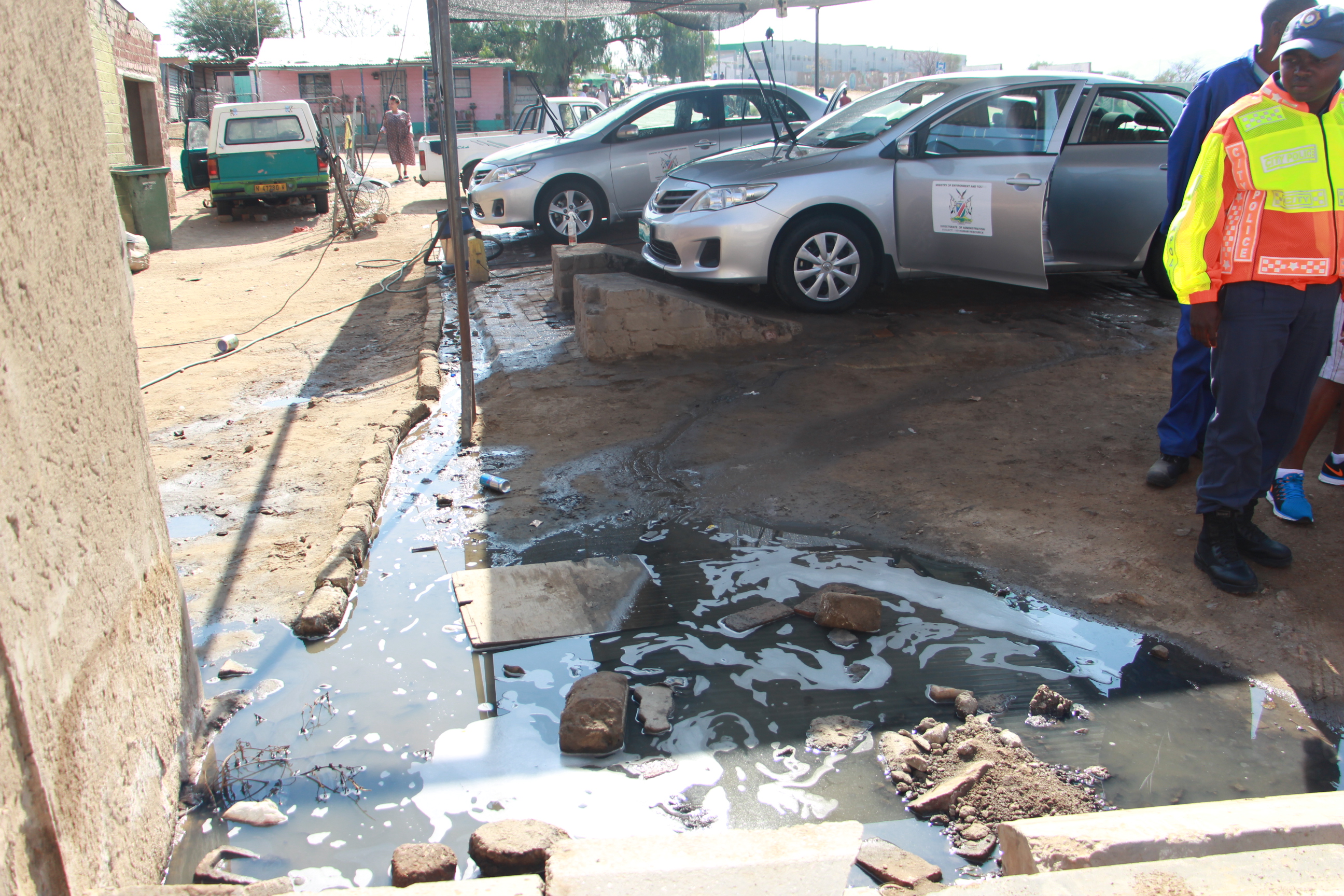Last warning for illegal car washes
The Windhoek municipality has issued a final warning to illegal car washes operating in public spaces, as well as those who enable them.
JANA-MARI SMITH
A police sweep targeting illegal car-wash operations in public spaces will start in Windhoek next Tuesday.
The City of Windhoek has warned illegal car washes to close down now rather than risk a forced shutdown, stiff fines and equipment seizures.
A spokesperson yesterday confirmed that an estimated 300 illegal car wash businesses operate in Windhoek, and only about 20 legal operations exist.
In a public notice issued yesterday, the City of Windhoek announced a zero-tolerance policy towards all illegal car-wash operations and unregistered fleet washing facilities. It will be enforced as from next week.
A City of Windhoek spokesperson said the municipality hoped that the five-day notice would motivate illegal car-wash operators to close shop before the City Police sweep begins.
The zero-tolerance campaign will be executed in two stages.
The first step targets businesses operating illegally from open public spaces, many with the help of nearby property owners who supply water and electricity.
In addition to the immediate closure of these operations, the City Police will issue fines of up to N$1 000 and confiscate equipment.
Property owners who supply water and electricity to car-wash operators will be fined too.
The water and electricity supply to such properties will be suspended immediately. The owners will have to pay reconnection fees and fines of more than N$2 000.
The municipality warned that all business owners must ensure they operate on private property and not on public land - a misunderstanding that has reportedly landed several owners in hot water.
Dieter Tolke, a technician in the municipality’s department for water demand management, explained that the zero-policy drive against illegal car-wash operations was based on various factors.
These included the costly damage caused to infrastructure by uncontrolled and inefficient water run-off systems, the impact of these businesses on surrounding communities, the legitimate concerns of legal car-wash operators and water demand management in the city.
“The goal of the City of Windhoek is to uplift the quality of life within all areas of the city,” he said.
The social aspects of illegal operations were a primary concern, he said. Pedestrians were inconvenienced by the mushrooming of car-wash operations on pavements, while blocked and damaged sewers and storm-water drains posed significant health risks.
The high cost of street and pavement repairs was carried by ratepayers and the pollution of riverbeds and dams had raised serious environmental concerns.
Tolke said although negative responses could be expected from some in the community, it was hoped that overall the exercise would be seen “as more beneficial than negative”.
The second phase of the operation is scheduled for the end of February, when every illegal and unregistered fleet washing facility will be closed down.
Such businesses would be closed immediately if they didn’t comply with building regulations or water efficiency regulations, the municipality warned.
A police sweep targeting illegal car-wash operations in public spaces will start in Windhoek next Tuesday.
The City of Windhoek has warned illegal car washes to close down now rather than risk a forced shutdown, stiff fines and equipment seizures.
A spokesperson yesterday confirmed that an estimated 300 illegal car wash businesses operate in Windhoek, and only about 20 legal operations exist.
In a public notice issued yesterday, the City of Windhoek announced a zero-tolerance policy towards all illegal car-wash operations and unregistered fleet washing facilities. It will be enforced as from next week.
A City of Windhoek spokesperson said the municipality hoped that the five-day notice would motivate illegal car-wash operators to close shop before the City Police sweep begins.
The zero-tolerance campaign will be executed in two stages.
The first step targets businesses operating illegally from open public spaces, many with the help of nearby property owners who supply water and electricity.
In addition to the immediate closure of these operations, the City Police will issue fines of up to N$1 000 and confiscate equipment.
Property owners who supply water and electricity to car-wash operators will be fined too.
The water and electricity supply to such properties will be suspended immediately. The owners will have to pay reconnection fees and fines of more than N$2 000.
The municipality warned that all business owners must ensure they operate on private property and not on public land - a misunderstanding that has reportedly landed several owners in hot water.
Dieter Tolke, a technician in the municipality’s department for water demand management, explained that the zero-policy drive against illegal car-wash operations was based on various factors.
These included the costly damage caused to infrastructure by uncontrolled and inefficient water run-off systems, the impact of these businesses on surrounding communities, the legitimate concerns of legal car-wash operators and water demand management in the city.
“The goal of the City of Windhoek is to uplift the quality of life within all areas of the city,” he said.
The social aspects of illegal operations were a primary concern, he said. Pedestrians were inconvenienced by the mushrooming of car-wash operations on pavements, while blocked and damaged sewers and storm-water drains posed significant health risks.
The high cost of street and pavement repairs was carried by ratepayers and the pollution of riverbeds and dams had raised serious environmental concerns.
Tolke said although negative responses could be expected from some in the community, it was hoped that overall the exercise would be seen “as more beneficial than negative”.
The second phase of the operation is scheduled for the end of February, when every illegal and unregistered fleet washing facility will be closed down.
Such businesses would be closed immediately if they didn’t comply with building regulations or water efficiency regulations, the municipality warned.





Comments
Namibian Sun
No comments have been left on this article